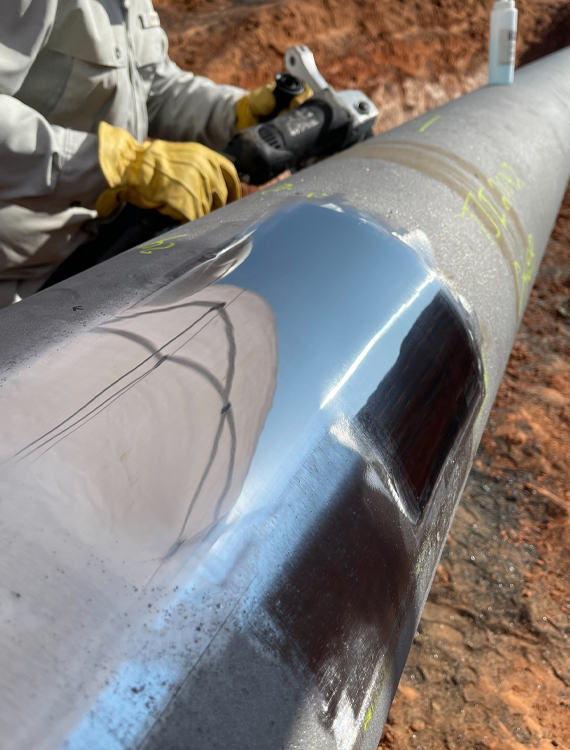
HSD Testing
TJ Inspection provides trained and certified personnel to operate MMT’s Hardness, Strength, and Ductility (HSD) testers. This equipment and process enable clients to meet the requirements of DOT §192.607 and the PHMSA Mega Rule for Traceable, Verifiable, and Complete (TVC) records without the need for cutouts or additional hydrotesting. The process is applicable to both in-service piping and non-operational piping.
- HSD TESTING
- EQUIPMENT
HSD TESTING
Ultimate Tensile Strength, Yield Strength, and Grade
Data collected by the HSD tester is analyzed to provide conservative values for Ultimate Tensile Strength (UTS), Yield Strength, and Grade.
Construction Method and ERW Seam Evaluation
The pipe size, seam type, and Electric Resistance Weld (ERW) seam type are confirmed. By running the tester over an ERW seam, it can be determined whether the weld is high-frequency or low-frequency and whether post-weld heat treatment (PWHT) has been performed.
Chemical Composition
Our certified technicians remove a small surface sample from the pipe, which is then sent to a laboratory for chemical analysis. The chemical composition and carbon equivalent are determined using ICP-OES and combustion testing.
Metallographic Grain Structure Evaluation
Microscopic analysis is performed to evaluate the steel’s microstructure for grain size and consistency.

EQUIPMENT
All HSD testing is performed using MMT’s HSD 8000 tester, the most up-to-date equipment for MMT’s HSD evaluation process. It can be utilized on:
- Grades A–X70
- Vintages from 1920 to present
- Any seam type
- Yield strength from 29–80 ksi
- Ultimate tensile strength from 50–104 ksi
- Yield/UTS ratio from 0.56–0.96

